Keyword Ranking
What is a keyword ranking?
A keyword ranking is a website’s organic ranking position in the search results for a particular keyword. Most websites have many keyword rankings because they rank for many search terms across various pages.
Why are keyword rankings important?
Keyword rankings are important because higher ranking pages get more organic search traffic. That’s because 75.1% of all clicks go to the top three organic results and 31.73% of clicks go to the top-ranking page.
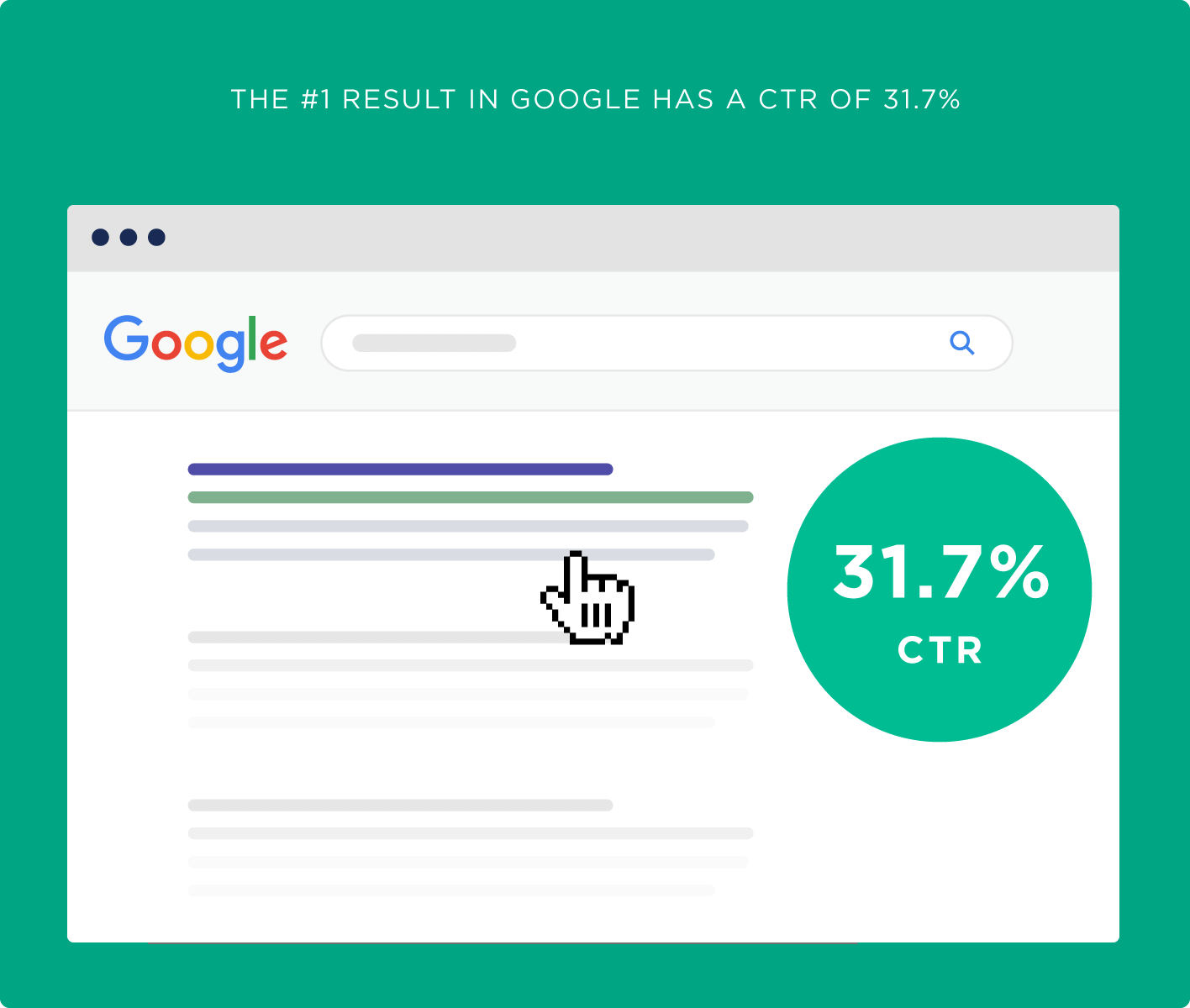
How to find your keyword ranking position
Google Search Console tells you average ranking positions for the keywords you rank for, but you can find your absolute ranking position for any keyword in almost any country with our free keyword rank checker:
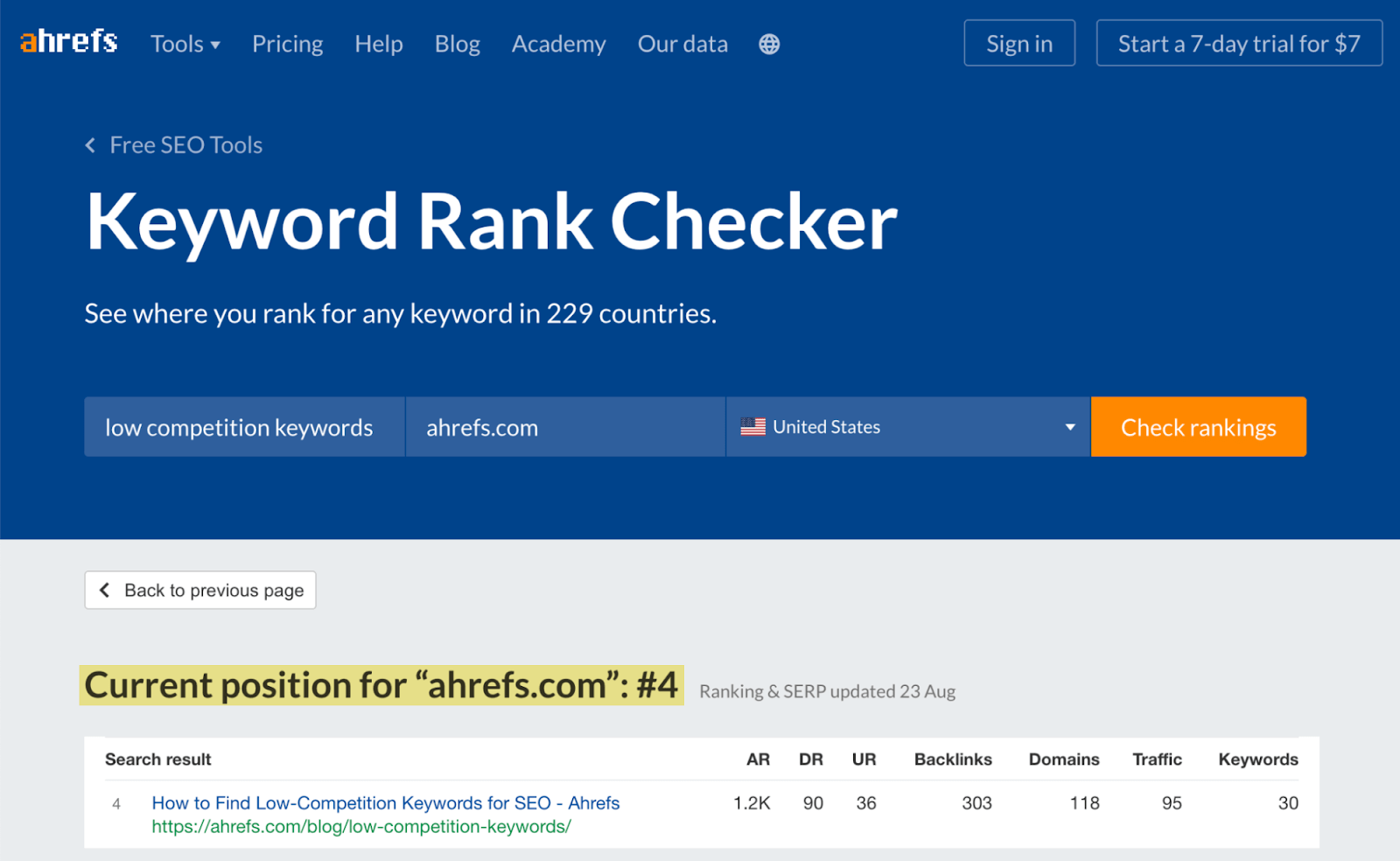
To see all the keywords you rank for and their absolute ranking positions for free, use Ahrefs Webmaster Tools (AWT):
- Sign up for a free AWT account.
- Verify site ownership.
- Go to Site Explorer.
- Enter your domain or URL.
- Select the country you want to see rankings for.
- Click the Organic Keywords report.
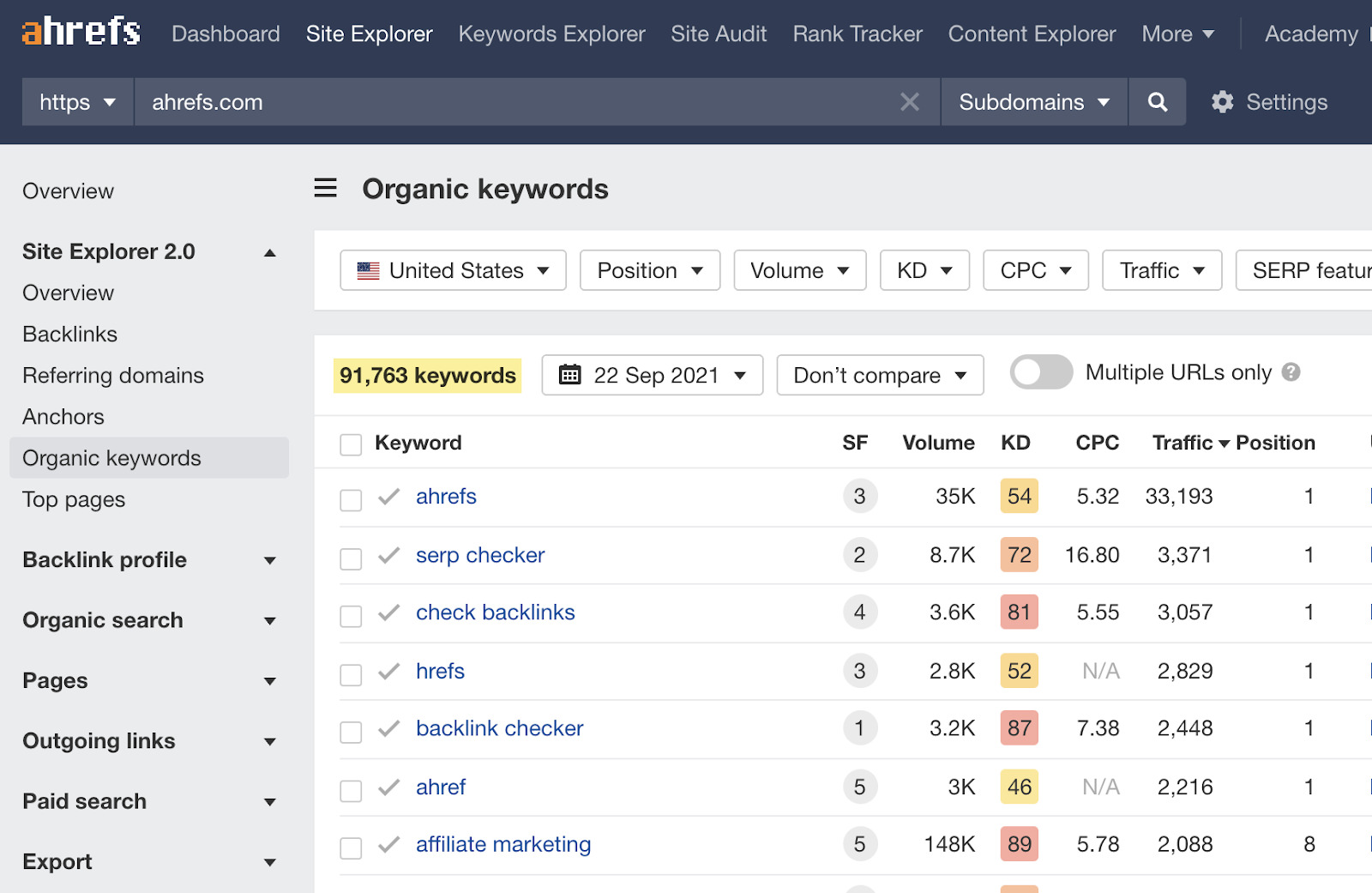
Best practices for improving keyword rankings
Google famously has over 200 ranking factors, so there are many ways to improve keyword rankings. Below we’ll take a look at a few best practices for doing precisely that.
1. Optimize for search intent
People are looking for something specific when they type keywords into Google. This is known as search intent. You’ll stand the best chance of ranking high for a keyword by aligning your page with search intent because Google wants to give searchers what they want.
For some keywords, search intent is obvious from the keyword itself.
Example: Someone searching for “how to grill steak” clearly wants cooking instructions. They’re not looking to buy steak or learn about the history of steak—they just want to know how to cook it.
For other keywords, search intent isn’t so immediately obvious.
Example: It’s unclear whether someone searching for “steak seasoning” wants to buy ready-made steak seasoning or a recipe for making it from scratch.
In cases where search intent is unclear, use the top few search results as a proxy.
If you do this for “steak seasoning,” you’ll see that they’re all recipes. There’s not an e-commerce page in sight. You can infer search intent from these results because Google wouldn’t rank so many recipes if that’s not what searchers wanted to see.
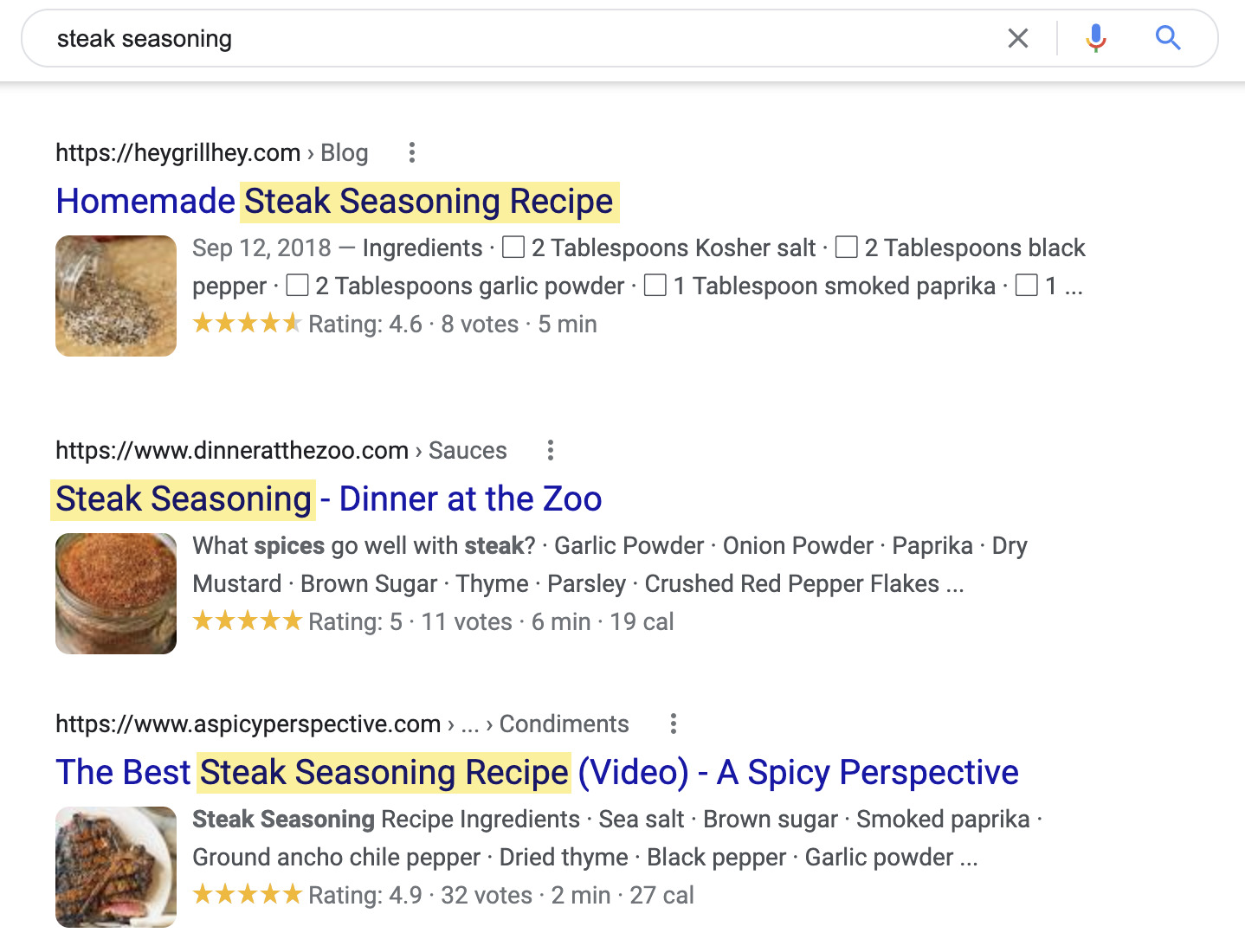
2. Get more backlinks
Backlinks are one of Google’s top three ranking factors. We also found a positive correlation between backlinks and search traffic in our study of over one billion pages. So if you want to rank for anything competitive, you’re almost certainly going to need backlinks.
You can get a rough estimate of how many backlinks you might need to break onto the first page of Google in Keywords Explorer:
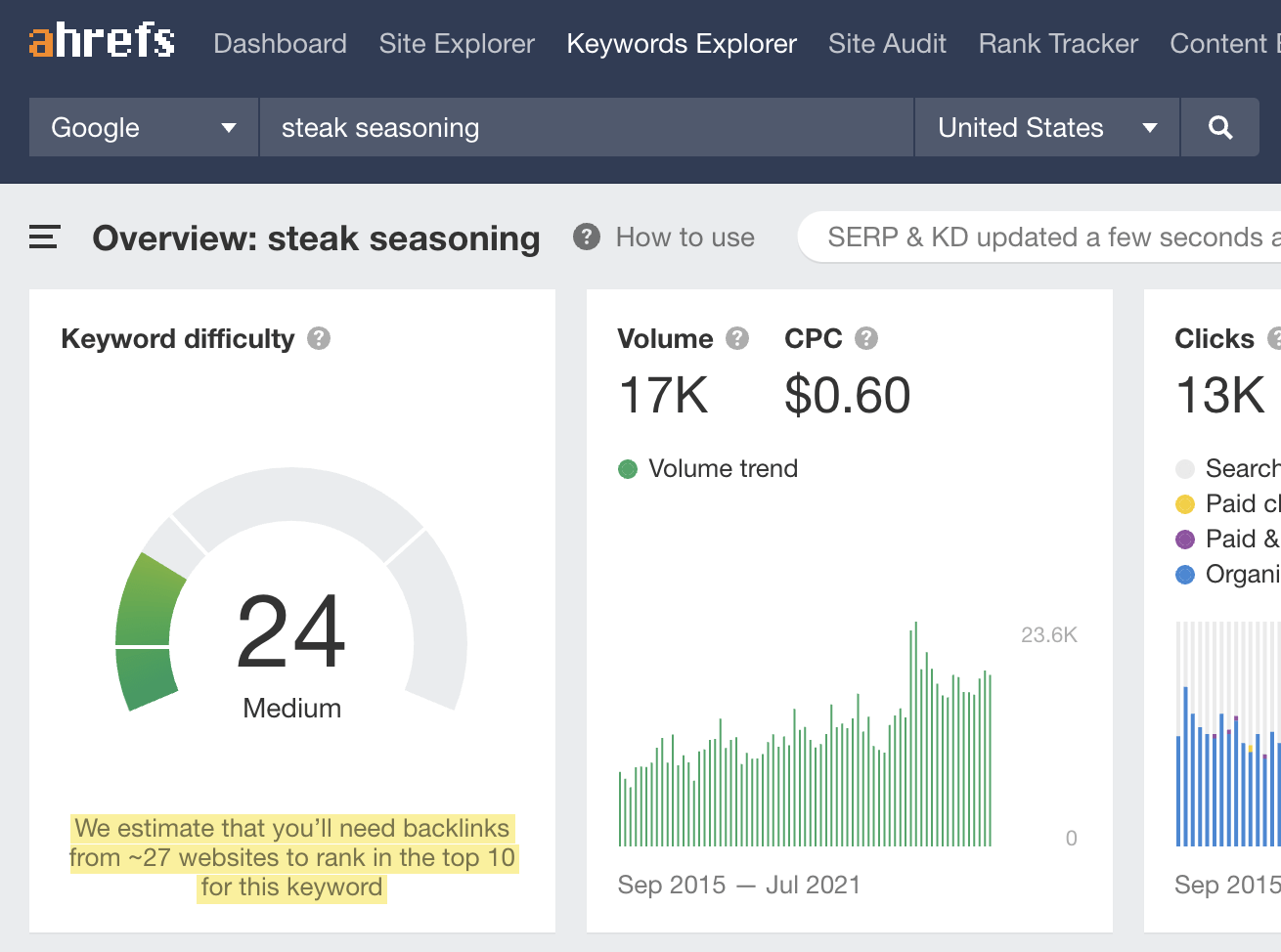
There are many ways to build backlinks, but the best starting point is to analyze the backlinks of competing pages for two things:
- Replicable links – the ones that you may be able to replicate like for like.
- Trends – backlinks with similar attributes, which may provide some insight into the best link-building strategies and tactics for a particular page.
Replicable links – example
If we check the backlinks to one of the top-ranking pages for “steak seasoning” in Site Explorer, we see that it has a link from a “no BS guide to grilling steak”:
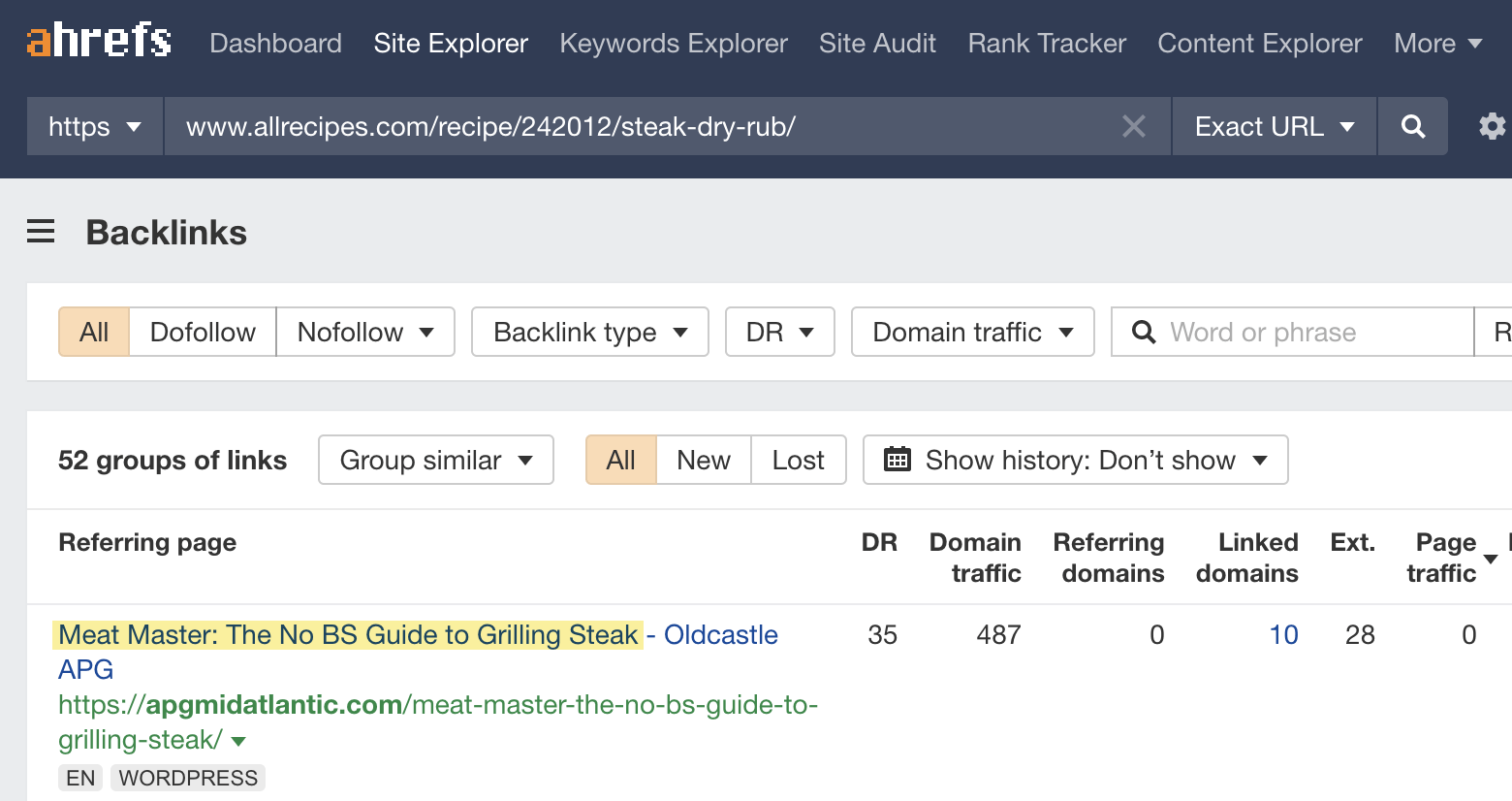
This post quite literally lists and links to a few different steak seasoning recipes—including the one ranking on Google’s first page:
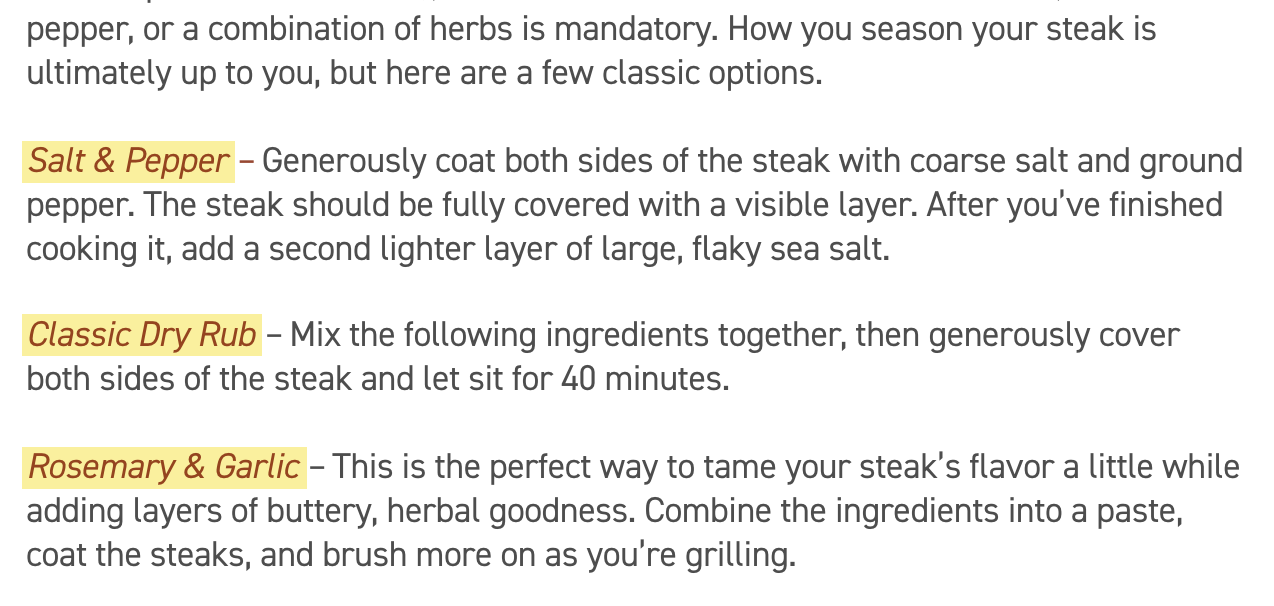
So this is a potentially replicable backlink because you could easily contact the owner of this site and suggest that they add your delicious steak seasoning recipe to this list.
Trends – example
If we check the backlinks to another top-ranking page for “steak seasoning” in Site Explorer, we see that many of the backlinks come from recipes for meals that involve steak—such as Sloppy Joes:
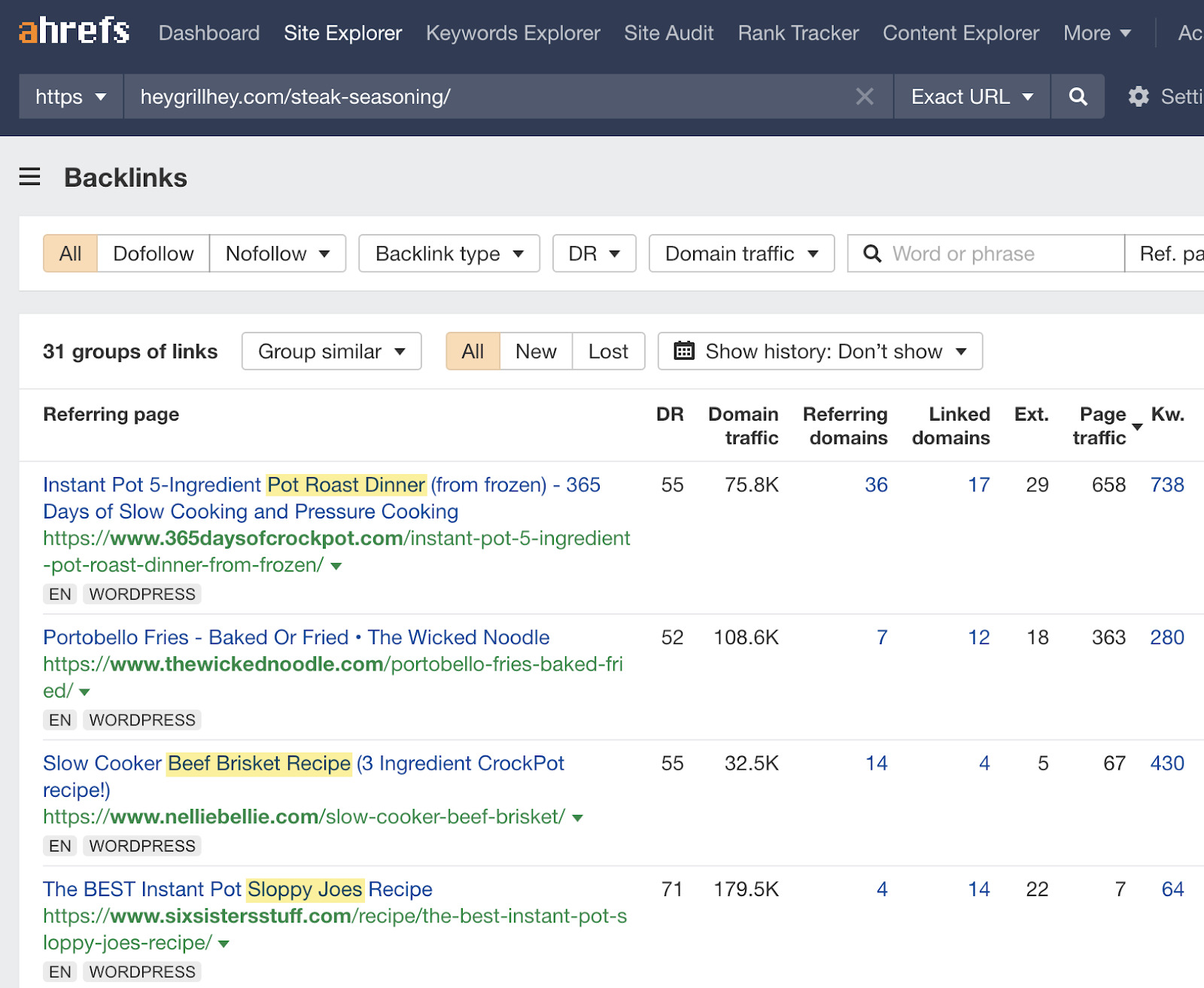
This makes sense. Rather than creating their own steak seasoning from scratch, food bloggers are linking to tried and tested seasonings from their recipes.
So while it would be difficult to replicate these exact links, the trend tells us that a viable link-building tactic for a similar steak seasoning recipe could be to pitch sites with recipes for sloppy joes, pot roasts—anything that could be improved with our steak seasoning.
You can find relevant recipes in Content Explorer by running a search like title:"sloppy joes recipe" -"seasoning":
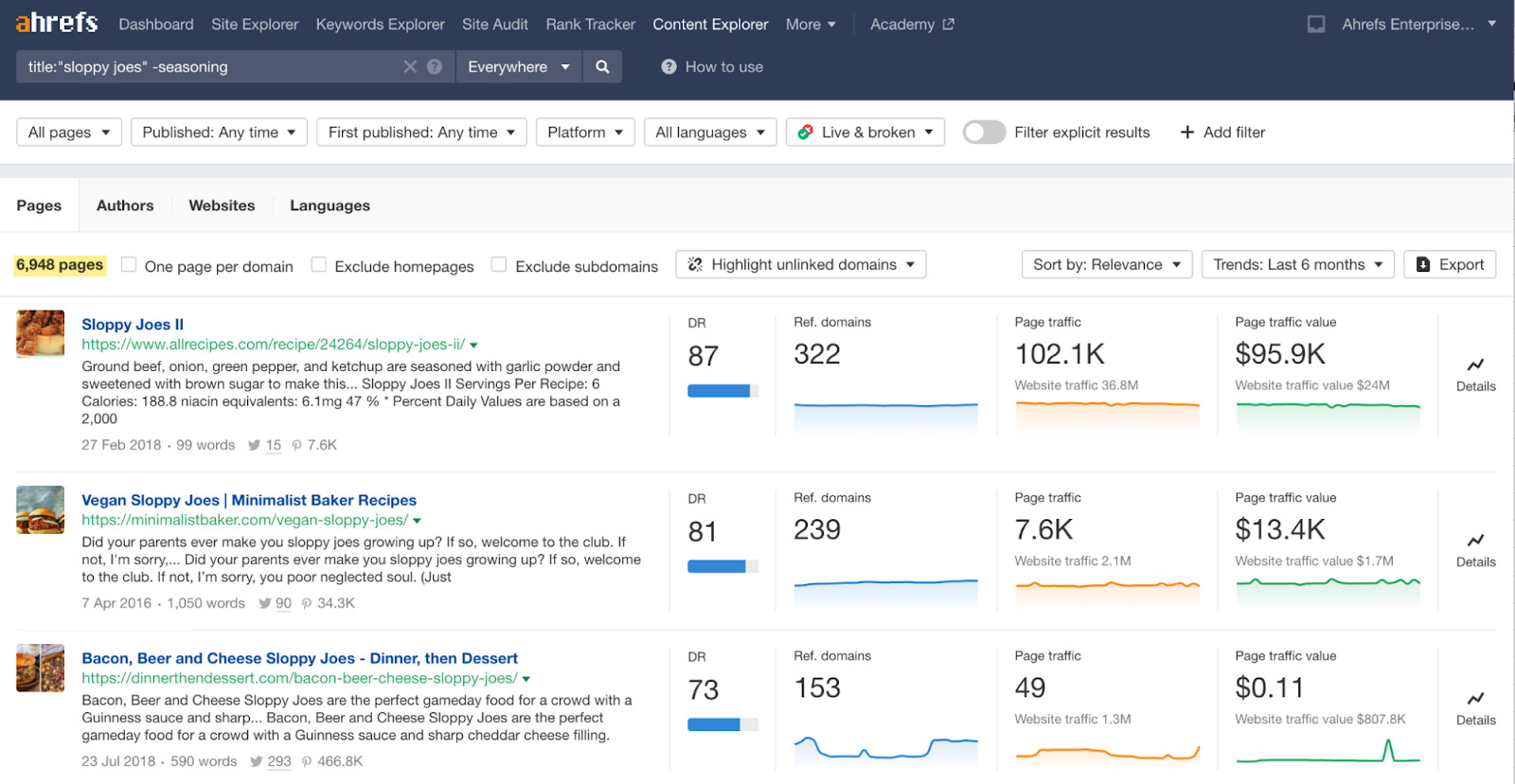
This search finds pages with “sloppy joes recipe” in the title that don’t mention the word “seasoning” on the page. In other words, recipes for sloppy joes that neglect to season their beef—the perfect place to pitch a steak seasoning recipe.
FAQs
Can you pay Google to rank higher?
No, you can’t pay Google for higher organic keyword rankings. You can only pay Google to appear in their paid search results. Google chooses which pages rank in the organic results on merit alone using hundreds of ranking factors.
What’s the difference between keywords and search queries?
Nothing. SEO professionals use these terms interchangeably to describe the words and phrases that people type into search engines.